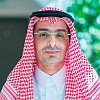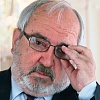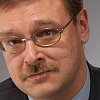Experts
M.A. Candidate, International Economics and Energy, Resources & Environment, Johns Hopkins University
PhD in History, Political Studies Center of the RAS Institute of Economics
Middle East expert and Russian foreign policy analyst, MSc Global Public Policy, Hubert H. Humphrey School of Public Affairs, University of Minnesota. PhD candidate, RIAC expert.
Head of Research, The European Geopolitical Forum
Secretary-General of the King Faisal Center for Research and Islamic Studies
PhD in Pedagogy, Head of Methodic Department at Russian National Library, Board Member of Russian Library Association
Third Secretary, Press-Attaché of the Embassy of the Russian Federation in Ankara
Post-graduate student in the Russia in the Asia-Pacific Region: Politics, Economy, Security international educational program at the Far Eastern State University
Ambassador Extraordinary and Plenipotentiary of the Russian Federation
Deputy Speaker of the Federation Council of the Federal Assembly of the Russian Federation, RIAC Member
Professor of government and politics at George Mason University
RIAC Expert
Doctor of Economics, Head of Marketing and Advertising Chair at Russian State University for Humanities, Honorary Member of the Guild of Marketers
Ambassador Extraordinary and Plenipotentiary of the Russian Federation, RIAC member
Program Coordinator and Website Editor at the Russian International Affairs Council
PhD in Political Science, Senior Lecturer, Department of Applied International Analysis, MGIMO University, RIAC expert
Analyst in charge of Former Soviet Union and Balkans Desk at Ce.S.I. Centro Studi Internazionali
RIAC Expert
A violent end to the Libyan crisis also seems unlikely in the near term, as the forces in the country’s east will have trouble organizing an effective attack on Tripoli without the support of Russia, whose military has other things in sight
Former First Deputy Chief of the Military Science Department, Russian Armed Forces General Staff
Program Coordinator, Website Content Manager at the Russian International Affairs Council
PhD, Professor, Senior Researcher of the Institute of Europe, Russian Academy of Sciences
PhD University of Cambridge, Researcher, Centre for Energy, Climate and Environmental Law, University of Eastern Finland; consultant at the International Institute for Sustainable Development
Ph.D. in History, Research Associate, Center for Arab and Islamic Studies, Institute of Oriental Studies at the Russian Academy of Sciences
Ph.D. (History), Head of the Department of Ethno-Political Conflict at the Institute of Europe under the Russian Academy of Sciences, RIAC expert
Ph. D., Executive Vice President of the Institute of International and Strategic Studies of Peking University
PhD in History, Center for Asia-Pacific Studies, Institute of World Economy and International Relations, Leading Research Fellow
Independent journalist, RIAC expert
Ph.D in History, Senior Research Fellow, IMEMO RAN, RIAC Expert
Poll conducted
-
In your opinion, what are the US long-term goals for Russia?
U.S. wants to establish partnership relations with Russia on condition that it meets the U.S. requirements 33 (31%) U.S. wants to deter Russia’s military and political activity 30 (28%) U.S. wants to dissolve Russia 24 (22%) U.S. wants to establish alliance relations with Russia under the US conditions to rival China 21 (19%)




















